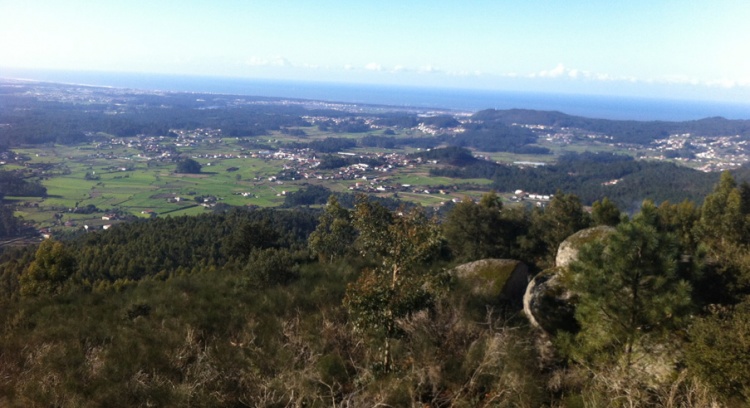The project consists in prevent/reduce forest fires by promoting the management and cleaning of forest land in Vila Cova, a village in Barcelos (in the North of Portugal), using goats for that purpose.
The project which we intend to develop combines the prevention of forest fires utilizing animals, namely goats, to clean the woods.
The animals have vital functions in the management of the ecosystems. Over the years they have been taken out of the forests in several places, preventing their pasture. Consequently many problems have emerged, particularly the uncontrolled growth of combustible materials, namely undergrowth or wild vegetation, which in the driest periods of the year are easily inflammable.
Why goats? Goats are animals with a very particular feeding behaviour. They select and search for specific parts of plants (the most nutritive) and do not destroy them completely. Furthermore the goats anatomy allows them to adapt to the inclined topography of the forests, being able to reach the highest parts of the plants by standing only in their hindquarters. They can also climb to steep areas to feed.
Every year fires destroy thousands of hectares of forest. There is very little management of the forest land, namely the wild vegetation that grows systematically and due to the fact they are combustible materials they need to be controlled. With the pasture of goats a reduction of dry combustible materials is achieved. They transformed the vegetation in organic matter, which fertilizes the ground and consequently a quicker forest regeneration is attained, mainly of the trees.
The project aims to achieve a global forest management, focused not only on the wild vegetation, but also on the trees. This is due to the fact that the fire may propagate itself not only through the forest floor, but also through treetops.
The undergrowth can be controlled by the animals. However, our function will be to promote the balance between the amount of animals in an intervention area and its vegetation. This balance is important, since excessive pasture causes absence of shelters to other small animals as rabbits, hares, birds and enhances the probability of soil erosion; and reduced pasture does not lower the risk of forest fire, because it does not eliminate enough vegetal material.
For this to happen we need to acquire some goats and fences and to create conditions for housing animals.
We need your cooperation and we are counting on you do start this project, which we hope to be an inspiration and example to others and that it can be replicated elsewhere.
You are most welcome to follow the project’s development in social networks and when it is ready you can follow it in person.
The initial intervention zone will be at grounds of the village of Vila Cova, in Barcelos (in the North of Portugal).
Thank you for your cooperation.

Antonio Boucinha
QUINTAL HOLÍSTICO
Estou interessado em apoiar um projecto empresarial desta natureza mas que seja inovador, modular e ambulante, ou seja:
Cada módulo seja constituído por uma casa abrigo, cercas e cabras.
As cercas devem ser leves e facilmente amovíveis para que se possam deslocar para diferentes zonas junto à casa abrigo
A casa abrigo seja também leve e amovível para ser desmontada e montada noutra localidade
As cabras devem ser em número reduzido para que possam ser transportadas de um lado para o outro conjuntamente com as cercas e com a casa abrigo, em camião alugado caso a caso.
O serviço de mudar as cercas para diferentes zonas junto à casa abrigo seja da responsabilidade de quem encomenda o serviço de limpeza das matas.
O serviço de montagem, desmontagem e transporte de cada módulo seja pago pela produção do leite obtido.
A recolha regular do leite pelo empreendedor seja optimizada com o crescimento do número de módulos implantados.
Assim o custo da limpeza das matas ficava dividido entre os proprietários dos terrenos (com o trabalho prestado a mudar as cercas) e o empreendedor com o trabalho de tratamento do gado e com a recolha do leite.
Log in or register to post comments